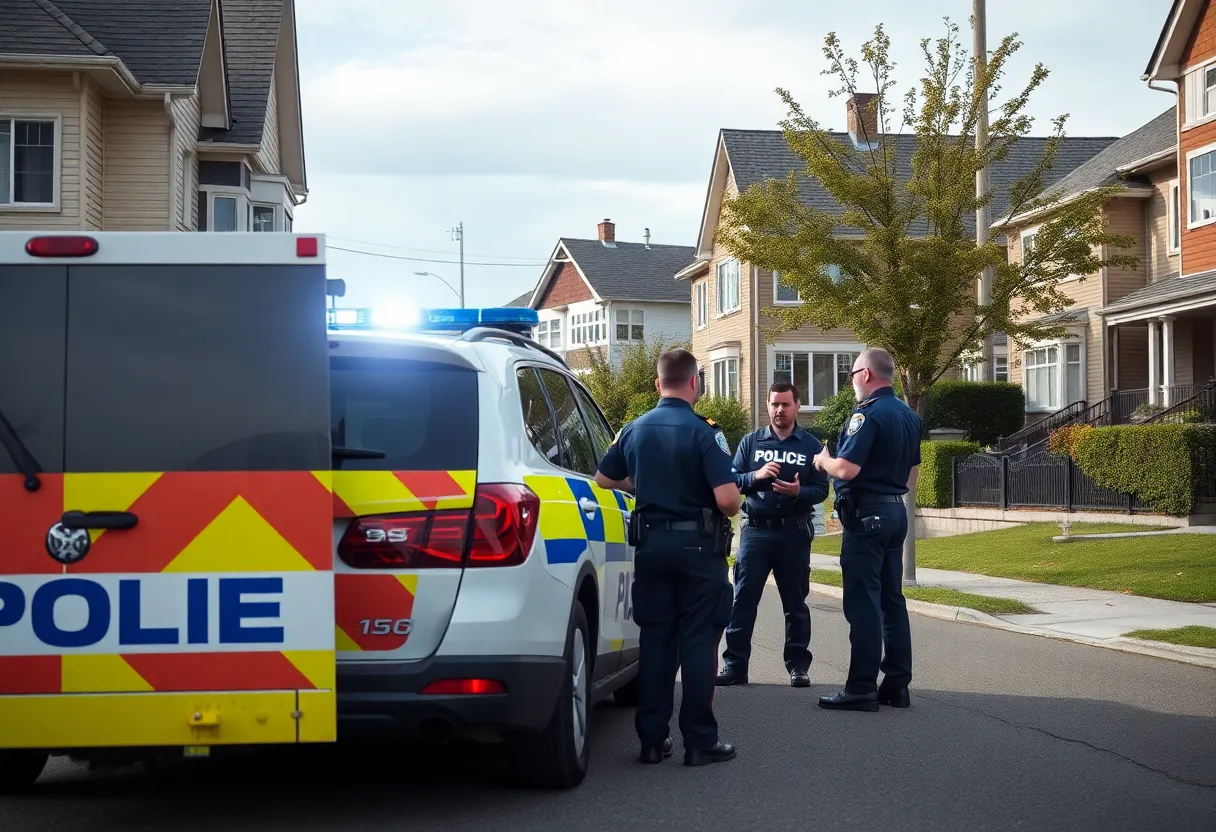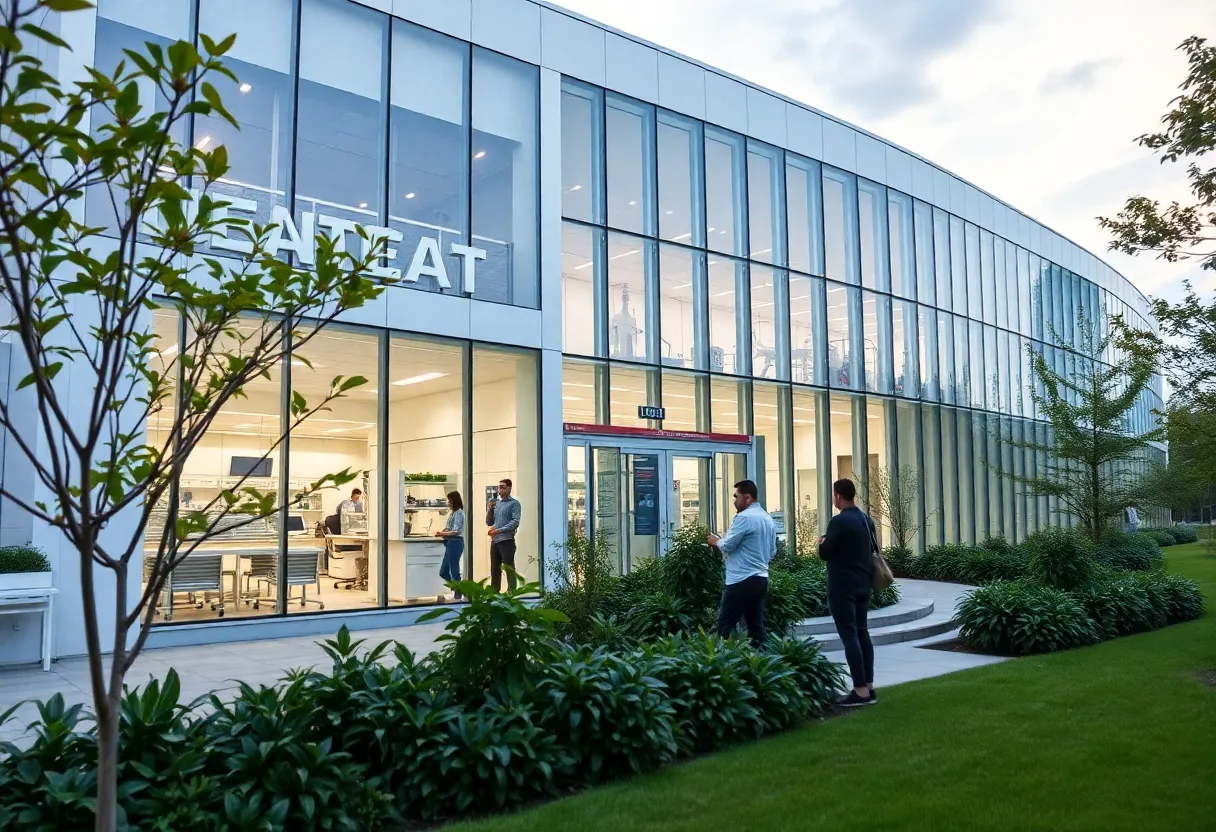News Summary
Rhode Island has initiated a $108.7 million Broadband Equity, Access, and Deployment (BEAD) program to enhance internet access for homes and businesses statewide. Applications opened on April 7, 2025, and the initiative aims to ensure reliable high-speed broadband services for 2,879 eligible locations. Despite challenges including a lawsuit from Cox Communications over broadband mapping inaccuracies, state officials remain optimistic about improving connectivity and fostering economic growth.
Rhode Island has launched a $108.7 million Broadband Equity, Access, and Deployment (BEAD) program aimed at enhancing internet services throughout the state. Applications for the program opened on April 7, 2025, and will remain open until May 9, 2025. The initiative is designed to ensure that all eligible homes and businesses in Rhode Island receive reliable, high-speed broadband access.
The state has identified a total of 2,879 locations—homes and businesses—that qualify for the BEAD program funds. Officials are optimistic about the program’s potential to improve broadband access in Rhode Island, stating that there will be adequate funding to reach all identified eligible locations. The BEAD program’s primary goal is to enhance economic opportunities and improve community infrastructure by providing comprehensive internet access.
However, the initiative comes with challenges, notably a legal dispute with Cox Communications. The telecommunications company has filed a lawsuit against the Rhode Island Commerce Corporation, contending that the state’s broadband mapping inaccurately classified numerous areas as underserved. Cox claims that the state’s data misidentified around 30,000 locations within its network as eligible for BEAD funding, despite these areas already having access to high-speed internet services.
The lawsuit raises concerns regarding the allocation of funds, as Cox argues that investing in well-served areas could lead to redundant expenditures. The Commerce Corporation has maintained its commitment to improving broadband access, asserting that Cox did not participate in the public planning process concerning fund allocation. After negotiations, the lawsuit was voluntarily dismissed in January 2025, and both parties expressed a continued commitment to enhancing broadband access.
In addition to the BEAD program, Verizon is also enhancing broadband service in Rhode Island. The company announced plans to extend its fiber internet service to over 3,000 underserved addresses in Jamestown and Westerly. This expansion, funded by the American Rescue Plan Act, is expected to significantly improve internet access in these areas. Construction of this project is projected to be completed by the end of 2026, marking a substantial investment in regional broadband services.
The ongoing debate about broadband technology preferences adds complexity to the BEAD program’s rollout, especially as it faces scrutiny under the current political climate. There is growing uncertainty concerning a $42.5 billion BEAD program due to proposed changes under the Trump administration. GOP lawmakers are advocating for a shift toward less expensive broadband options, such as fixed wireless and satellite technologies, rather than the focus on fiber optic solutions that Rhode Island officials endorse.
Despite these hurdles, state officials remain hopeful about the progress and investments in broadband infrastructure. The BEAD program aims to create a more equitable technological landscape, allowing all Rhode Islanders to benefit from improved connectivity. As the deadline for applications approaches, the state emphasizes its proactive steps to rectify any inaccuracies in the broadband mapping and ensure that legitimate underserved areas receive the funding and services they need.
By prioritizing broadband access and navigating the complexities of funding and technology preferences, Rhode Island is positioning itself to enhance its digital landscape while supporting economic growth and community development. The next few months will be critical as applications are reviewed, and investments in this vital infrastructure move forward, with the ultimate goal of making high-speed internet a universal service within the state.
Deeper Dive: News & Info About This Topic
- Rhode Island Current: R.I. Commerce, Cox Communications Can’t Connect on Broadband Access Map
- Broadband Breakfast: Cox, Rhode Island Settle Lawsuit Over BEAD Overbuild Funding
- CNET: Best Internet Providers in Rhode Island
- Verizon News: Verizon to Expand High-Speed Fios Internet in Rhode Island
- GoLocalProv: Rhode Island Needs Affordable Broadband, Not Another Boondoggle
- Wikipedia: Broadband Access
- Google Search: broadband Rhode Island
- Google Scholar: broadband infrastructure Rhode Island
- Encyclopedia Britannica: broadband access
- Google News: Rhode Island broadband

Author: STAFF HERE PROVIDENCE WRITER
The PROVIDENCE STAFF WRITER represents the experienced team at HEREProvidence.com, your go-to source for actionable local news and information in Providence, Providence County, and beyond. Specializing in "news you can use," we cover essential topics like product reviews for personal and business needs, local business directories, politics, real estate trends, neighborhood insights, and state news affecting the area—with deep expertise drawn from years of dedicated reporting and strong community input, including local press releases and business updates. We deliver top reporting on high-value events such as WaterFire, Rhode Island International Film Festival, and Rhode Island Comic Con. Our coverage extends to key organizations like the Greater Providence Chamber of Commerce and Providence Warwick Convention & Visitors Bureau, plus leading businesses in finance and manufacturing that power the local economy such as Citizens Financial Group and Textron. As part of the broader HERE network, we provide comprehensive, credible insights into Rhode Island's dynamic landscape.





